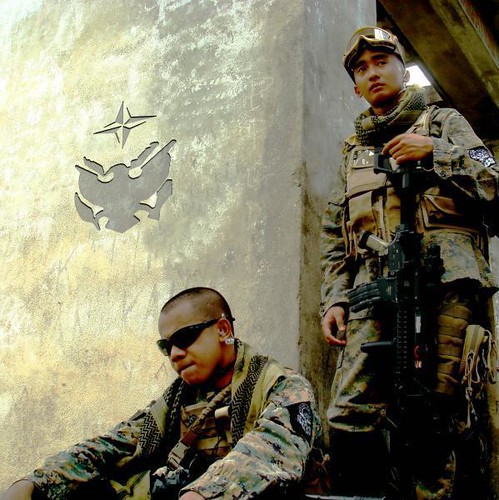Putin went to war for ‘less NATO,’ military alliance chief says — and that’s backfired
NATO #NATO

NATO Secretary-General Jens Stoltenberg at the NATO Summit in Vilnius, Lithuania, on July 11, 2023.
Bloomberg | Bloomberg | Getty Images
Russia’s war in Ukraine has helped enlarge, rather than rein in the expansion of the NATO military alliance, Secretary-General Jens Stoltenberg said Tuesday, a day after Turkey endorsed Sweden’s membership bid.
Prior to his full-fledged invasion of Ukraine last year, Russian President Vladimir Putin cited supposed national security risks resulting from Kyiv’s ambitions to join NATO.
“[Putin] went to war because he wanted less NATO. He’s getting more NATO,” Stoltenberg told reporters on Tuesday at the start of the NATO summit in Vilnius, Lithuania. “Moscow, President Putin, does not have a veto on NATO enlargement.”
Stoltenberg’s comments come after Turkey on Monday agreed to back Sweden’s accession bid into the NATO alliance, after withholding its endorsement for over a year. Ankara’s diplomatically complex objections centered primarily on Sweden’s support for Kurdish groups that Turkey designates as terrorist.
Stockholm and Helsinki abandoned their historical conflict neutrality and submitted their applications to join NATO in May 2022, in the wake of Russia’s invasion of Ukraine. Finland became the 31st member of the alliance in April this year and has participated in its first drill exercises with the coalition since.
Ukraine has been pushing to advance its own NATO membership, but alliance officials have repeatedly said its accession is unlikely while war is still being waged on its territories. Kyiv’s bid to enter the European Union has likewise stalled, as Ukraine pushes forward with judicial and anti-corruption reforms.
Clear, positive signal
Still, Stoltenberg on Tuesday noted that Kyiv has made significant progress in deepening its relations with NATO since the April 2008 summit in Bucharest where it was agreed that Ukraine and Georgia would join the alliance.
“Ukraine has come a long way since we made that decision in 2008 that the next step will be a membership action plan,” he said. “Ukraine is much closer to NATO, so I think the time has come to reflect that in also the NATO decisions.”
Stoltenberg also stressed that “NATO allies will send a strong, positive message on the path forward for Ukraine” in its communique later in the day.
Questions linger over the security guarantees that NATO can offer Ukraine and the extent to which these commitments can survive a potential leadership change in the U.S., which is set to hold elections in November 2024.
The protracted accession progress is wearing thin for Ukrainian President Volodymyr Zelenskyy, however.
“Unprecedented and absurd – when there is no time frame for both the invitation (!) and Ukraine’s membership; and when instead some strange wording is added about the “conditions” even for inviting Ukraine,” he wrote on Telegram on Tuesday, according to a Google translation.
“It looks like there is no readiness either to invite Ukraine to NATO or to make it a member of the Alliance,” he added. “And for Russia, this means motivation to continue its terror.”
Stoltenberg has confirmed that Zelenskyy will be attending the NATO summit.
Russian security
In Google-translated comments carried by Russian state news agency Tass on Telegram, Kremlin spokesperson Dmitry Peskov on Tuesday warned that Ukraine’s potential membership of NATO is “very dangerous for European security,” adding that Sweden’s entry into the alliance will have “negative consequences.”
Russia will closely monitor the NATO summit to take steps to ensure its own security, Peskov said.
Russia strongly opposes NATO expansion and regularly cites concerns over the spread of Western influence close to its borders.
Kyiv officially wrested its independence from the Soviet Union in August 1991, but Putin maintains Russians and Ukrainians are “one people” — a claim that is rejected by many in Ukraine. Moscow seized the Crimean peninsula from Ukraine in 2014 and last September illegally annexed four other Ukrainian oblasts: Donetsk, Kherson, Luhansk, and Zaporizhzhia.
The Russian invasion has spurred NATO to strengthen, rather than withdraw its presence in Eastern Europe.
“NATO has increased its military presence in the eastern part of the Alliance as a direct result of Russia’s behaviour, which reflects a pattern of aggressive actions against its neighbours and the wider transatlantic community,” the alliance said last month.